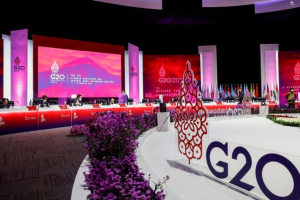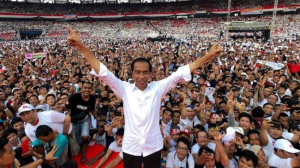Indonesia lags behind on energy transition commitments: Climate Analytics
A new report by Climate Analytics reveals that Indonesia is falling behind in fulfilling its international energy transition commitments, citing that alongside seven other Asian countries, Indonesia has shown slow and inconsistent progress in shifting from coal to renewable energy, despite having signed major global pledges.
The report, titled “The Impact of Global Climate Pledges on National Action: A Snapshot Across Asia,” highlights a gap between what countries pledged and their actual policy implementation. It attributes this gap to the non-binding, voluntary nature of international energy agreements, which often lack enforcement mechanisms.
“One of the key problems is that these international commitments are voluntary and non-binding, which ultimately limits their impact,” Nandini Das, one of the report’s authors, said as quoted in a statement on Thursday, April 17, 2025.
“Governments can make bold statements at COP conferences without following through with real actions,” she added.
Indonesia is committed to reducing coal capacity by signing the Global Coal to Clean Power Transition Statement at COP26. It also announced plans to phase out coal-fired power plants (PLTUs) by 2056 and pledged at the G20 Summit in Brazil to retire all fossil fuel-based power plants by 2040. However, the government has yet to release a detailed policy framework or action plan to achieve these goals.
Instead, the report found that coal-fired power plant capacity in Indonesia has continued to grow, now accounting for 45 percent of the country’s total electricity generation. Since mid-2023, coal plants with a combined capacity of 1 gigawatt (GW) have either been permitted or begun construction. Moreover, the National Electricity General Plan (RUKN) 2024–2060 still forecasts an increase in coal capacity of 76.5 GW − up 26.8 GW from 2024.
Progress in renewable energy investment also remains limited. Indonesia saw only US$400 million invested in renewable projects in 2023 − less than neighboring Thailand − largely due to complex regulations around renewable energy.
Indonesia has also signed the Global Methane Pledge, committing to cut methane emissions by 30 percent below 2022 levels by 2030. Yet, emissions rose by 7 percent from 2022 to 2023, with no concrete government plans to address reductions across sectors.
The report underscores that Indonesia is not alone in this trend. Other countries including the Philippines, Vietnam, South Korea, and Japan are also struggling to align their national policies with their international energy pledges.
“While these pledges provide a foundation for progress, much of their content remains absent from countries’ NDCs and domestic policies,” Thomas Houlie, the lead author, said.
“This year’s NDC updates offer governments the chance to show whether these voluntary pledges will drive real ambition − or remain political and diplomatic rhetoric,” he added.
Already have an account? Sign In
-
Start reading
Freemium
-
Monthly Subscription
20% OFF$29.75
$37.19/MonthCancel anytime
This offer is open to all new subscribers!
Subscribe now -
Yearly Subscription
33% OFF$228.13
$340.5/YearCancel anytime
This offer is open to all new subscribers!
Subscribe now







